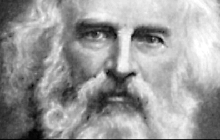The fact that beauty often affects our emotions prior to any reasoning about it is a major aspect of how beauty attracts us. We “feel” beauty before we can even put what we are apprehending into words. The following TED talk develops this aspect of beauty.
Beauty is built into the structure of our world. In fact, beauty brings us to a place of harmony within our world. Grasping the beauty that is all around us brings us delight by bringing us into proper unity with the created realities of this world. Finding a unity among the universe’s diverse parts or elements is often a way of defining beauty. Music is a wonderful way to illustrate this. So much literature in the study of music centers on the relationship between our own human heart beat, that of 3:4 time, and the effect that 3:4 music has when we listen to, or the conflict that comes when other time signatures are used.
Another example between us as humans and the musical world around us and our seeking harmony through beauty is the pentatonic scale. Consider what the musician Bobby McFerrin is illustrating in this brief and compelling video moment:
Beauty sweeps the brush of pleasure over the sometimes hard edges of truth and the sacrificial side of doing what is right. In a world built only of truth and goodness, but not given beauty, we would be hard pressed to find pleasure. But that is exactly what beauty promises. It is why we desire to find beauty in life, and then hold on to it as long as we can. And the fleeting nature of the sublime is one of the most perplexing issues in the Great Conversation. The ideas of Heaven or Paradise or Utopia hold out the incredible promise that beauty might be eternal, rather than all too fleeting and temporal as we find it in our lives at the moment. Those ideas suggest that a mountain top sunrise might last forever, rather than a few moments. This is the power of true and good beauty.







